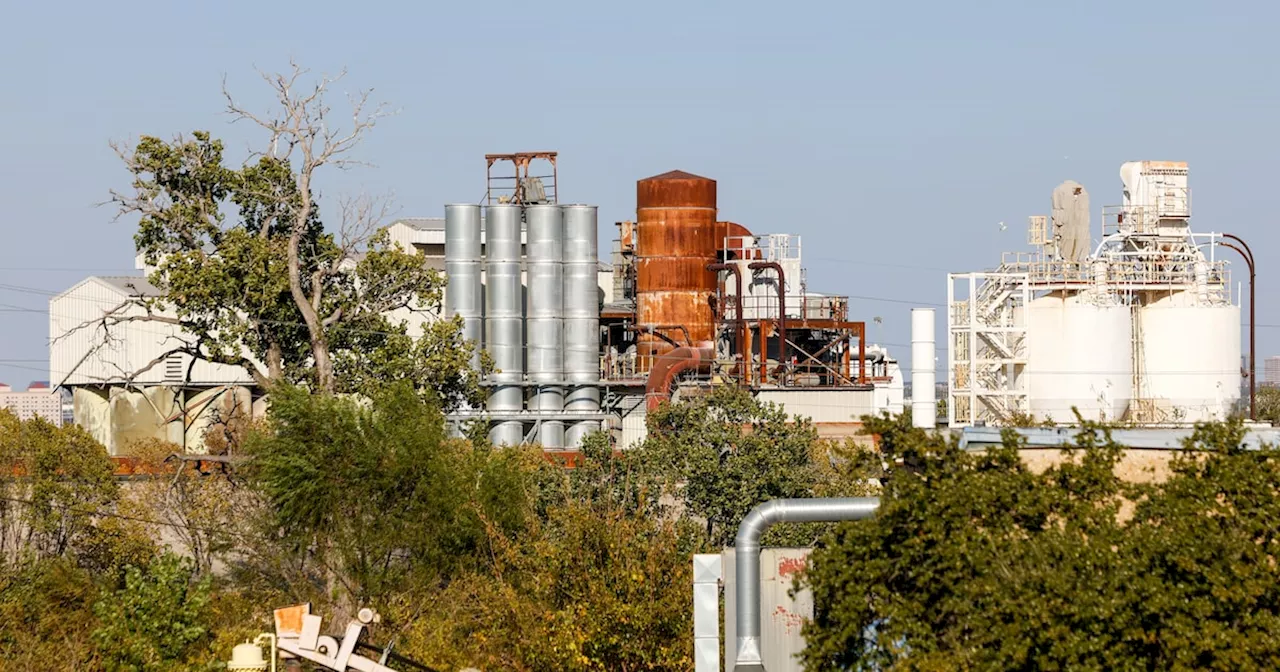Residents along Singleton Boulevard in West Dallas are advocating for significant changes to local zoning laws that would limit heavy industrial uses in their neighborhoods. Many of these areas, predominantly inhabited by Latino and Black communities, are pushing to reduce the presence of industrial facilities to prevent displacement and maintain their neighborhood character. In response to community concerns, District 6 City Plan Commissioner Deborah Carpenter requested that the commission include a hearing to address land uses that do not align with residents’ needs.
The process toward potential rezoning is now advancing, with the city-initiated zoning case requiring a series of community meetings to gather feedback and recommendations. Following this phase, the proposed changes will be reviewed by the City Plan Commission and subsequently by the City Council.
Residents have expressed concerns for years about the implications of living near industrial operations. Janie Cisneros, leader of the advocacy group Singleton United/Unidos, has spearheaded a campaign for more than five years aimed at closing GAF, a roofing materials company that has operated its facility at 2600 Singleton Blvd. for nearly 80 years. Currently, the GAF property is zoned for industrial research, and while the company has indicated plans to close by July 2029, neighboring residents are urging for an expedited departure.
The proposed rezoning of the Singleton corridor is in line with ForwardDallas, the city’s updated land-use plan adopted in 2024. This new framework envisions the corridor transitioning from industrial zoning to primarily residential uses, alongside “commercial flex” areas and spaces for neighborhood-serving businesses. Cisneros noted, “This area has always been industrial. But the land-use changes that were adopted are already a huge win. The vision is no longer industrial.”
In a statement, GAF asserted its role as a significant local employer, with over 160 employees, emphasizing its commitment to safety, environmental compliance, and community involvement. The company expressed support for future repurposing of the land to align with the city’s vision for West Dallas.
The area earmarked for rezoning encompasses approximately 256 acres, bordered by Singleton Boulevard to the north, Borger Street/Burton Drive to the east, Union Pacific Railway to the south, and Westmoreland Road to the west. This region currently hosts a variety of businesses, including auto-repair shops, restaurants, towing services, and landscaping operations, in addition to educational and community facilities such as the Thomas A. Edison Middle Learning Center and St. Mary of Carmel Church and School.
For residents like Cisneros, the upcoming hearing represents a crucial step toward stabilizing a neighborhood where residential homes coexist with long-established industrial sites. These authorized hearings initiate city-led rezoning processes, allowing a review of existing zoning to ensure it aligns with the city’s long-term planning goals. The Planning and Development Department indicated that the process typically spans from six months to two years, depending on the complexity of the land use issues at hand.
Cisneros highlighted that the community first requested the rezoning in 2022 to facilitate homeowners in rebuilding aging or damaged properties and to curb further displacement. Residents collected signatures from property owners and delivered them directly to City Hall, advocating for the conversion of single-family homes to residential zoning. “We can’t get home loans, and we can’t rebuild if a house gets demolished. Families have been pushed out because of that,” Cisneros stated.
Despite the community’s urgent requests, city staff opted to proceed with a broader authorized hearing instead of an immediate rezoning. This decision has raised concerns among residents who feel it may delay progress. District 6 council member Laura Cadena, whose district includes the Singleton Boulevard corridor, has not yet responded to multiple requests for comment regarding the matter.
The slow progression of the Singleton corridor hearing mirrors a trend observed in other neighborhoods across Dallas where residents have sought changes to longstanding industrial zoning. For example, residents spent six years advocating for zoning changes for the site formerly known as Shingle Mountain, a 70,000-ton pile of roofing debris. The City Council finally approved its rezoning in February after extensive planning and community meetings. While this vote was welcomed, many residents felt it was long overdue.
In another instance, the Hampton-Clarendon corridor in West Oak Cliff saw a similar authorized hearing proceed despite significant opposition from residents concerned about displacement and redevelopment pressures. The City Council approved the rezoning from commercial to a mixed-use development in August 2025, following months of discussions. These cases have varied in outcome: while Floral Farms reflected residents’ requests, the West Oak Cliff changes moved forward against local objections.
Recent amendments to state law have complicated efforts for cities to shut down polluting businesses. Previously, Dallas officials employed a process called amortization to phase out incompatible industrial uses, but state lawmakers restricted this tool in 2024. Although rezoning regulations can facilitate future developments, existing businesses may continue operations as long as they comply with local and state regulations.
City staff clarified that the authorized hearing does not mandate the closure of any facility. Instead, it aims to explore potential replacements if a business were to vacate the area. In the wake of Tuesday’s meeting, a follow-up community gathering is scheduled, during which city staff will discuss feedback and zoning recommendations.
“We’re looking forward to the process,” Cisneros expressed. “We already have a community-led vision approved in ForwardDallas. At this point, we’re just asking the city to align the zoning with what’s already there.”
